There are several ways to go here:
Option 1: Create a Custom Build Tool
Visual Studio 2005 and newer will let you register custom build tools. They tell the IDE how to transform files of one form (e.g. a .cpp file) into another form (e.g. an .obj file).
So far as I know, no one has done this yet for GCC. And, doing it yourself requires writing COM code, which is probably too deep a pool to dive into just for a single project. You'd have to have a compelling reason to take this project on.
You then have to manually adjust each project to tell it to use the custom build tool instead of the default, since you're using a file name extension (.cpp, probably) that Visual C++ already knows about. You'll run into trouble if you try to mix the VC++ and g++ compilers for a single executable built from multiple modules.
On the plus side, if you were looking to start an open source project, this sounds like a good one to me. I expect you'd quickly gather a big user base.
Option 2: Makefile Project
Start Visual Studio and say File > New Project.
In the Visual C++ section, select Makefile Project
Fill out the Makefile Project Wizard:
- Build command line: make
- Clean commands: make clean
- Rebuild command line: make clean all
You can leave the Output (for debugging) field alone if you've named your executable after the project name and it lands where Visual Studio expects to find it.
Leave the rest of the fields alone unless you know what they are and why you want to change them. As an example, you might choose to pass a -D flag on the Preprocessor definitions line to get separate debug and release outputs. If you know you want this, you know how to set it up, so I'm not going to make this long answer even longer in order to explain it.
You'll be asked the same set of questions for the Release build. If you want to bother with separate debug and release builds, you'd make any changes here.
Having done all this, you still have to create the Makefile, and add a make.exe to your PATH. As with the debug vs. release question, going into that level of detail would push this answer off topic.
As ugly as this looks, it's still easier than creating custom build tools. Plus, you say you need to port to Unix eventually, so you're going to need that Makefile anyway.
Option 3: Cross-Platform Development
You say you want to port this program to Unix at some point, but that doesn't mean you must use GCC on Windows now. It is quite possible to write your program so that it builds under Visual C++ on Windows and GCC/Makefiles on *ix systems.
There are several tools that make this easier. One very popular option is CMake, which is available as an installation time option in newer versions of Visual Studio. There are many alternatives such as SCons and Bakefile.

